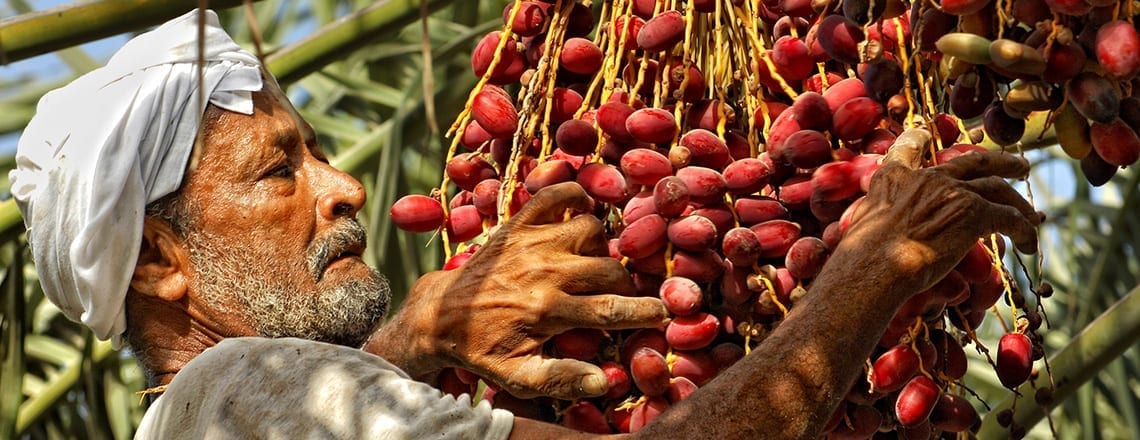
May 23, 2016
Update: The survey is now available in Spanish and French.
La encuesta está disponible en francés y español.
L’enquête est disponible en français et espagnol.
The United Nations Special Rapporteur is partnering with the Solidarity Center to research a report on the links between the political, social, and economic exclusion of workers, their associations and trade unions. The following article from the UN Special Rapporteur website describes how you can participate.
The globalization of the world economy in the past half-century has contributed to a dramatic rise in the power of large multinational corporations and has concentrated wealth in fewer hands. State power to regulate these business entities, meanwhile, has been simultaneously eroded and co-opted by elite economic actors themselves.
Unconstrained power – whether public or private in origin – is now, more than ever, a critical threat to the protection of human rights. This power shift has created a challenging environment for the enforcement of human rights, as Special Rapporteur Maina Kiai has documented in his two most recent reports on natural resource exploitation and the imbalance between how States treat businesses and civil society.
For his next report to the UN General Assembly (October 2016), the Special Rapporteur plans to explore a new dimension of this power shift: its effect on the rights to freedom of peaceful assembly and of association of workers – specifically the most marginalized portions of the world’s labor force, such as global supply chain workers, informal workers, migrant workers and domestic workers. He will also examine the gender and racial dimensions of the issue.
The Special Rapporteur is particularly interested in the links between the political, social, and economic exclusion of workers, their associations and trade unions, as expressed in:
- The limitation and/or criminalization of assembly and association rights in law and in practice (and acquiescence of the State when these rights are breached by state or private actors);
- The exclusion of workers in the informal economy from legal frameworks recognizing assembly and association rights;
- The strategy to informalize more work for the purpose of limiting or excluding workers from exercising their assembly and association rights;
- The lack of effective global governance of migration, which has led to the exploitation of migrant workers
The Special Rapporteur will also explore the interplay between the lack of assembly and association rights for workers and the health of these rights within a society as a whole.
What’s your opinion and experience?
The Special Rapporteur convened an expert consultation to discuss this subject in May 2016. But he would also like to hear your views. He is particularly interested in specific, real-world examples of how the assembly and association rights of workers are being both eroded and bolstered. These examples may be included in the report.
How to submit information for the report
For more details on the report, please see our concept note. For specific questions that the Special Rapporteur is looking to answer, please see the following questionnaires. Note that each file has three separate questionnaires: One for UN member states, one for businesses and one for civil society/unions/workers. Please answer only the questionnaire that corresponds to your position:
Questionnaires in English
Questionnaires in Spanish (coming soon)
Questionnaires in French (coming soon)
In responding to the questionnaire, please be sure to provide as much detail as possible and to specify which countries you are referring to.
Completed questionnaires should be e-mailed to freeassembly@ohchr.org. We will be accepting submissions until June 30, 2016. You may submit your responses in English, French or Spanish.
The Solidarity Center will assist with researching the report. Responses to the questionnaires will be shared with select Solidarity Center staff prior to the publication of the report.
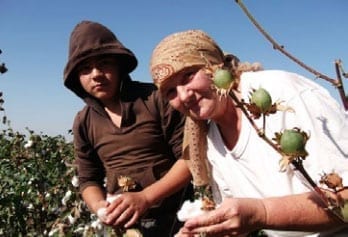
May 20, 2016
Uzbek human rights defender Elena Urlaeva has been detained against her will in a psychiatric hospital in Tashkent and the government should release her immediately, the Cotton Campaign said today. The Cotton Campaign is a coalition of worker rights and human rights groups that includes the Solidarity Center.
“Holding Elena Urlaeva in a psychiatric hospital without a clear medical rationale is a grave breach of medical ethics,” says Umida Niyazova, director of the Uzbek-German Forum for Human Rights (UGF). “She should be released immediately, and the Uzbek government must cease using hospitals as extrajudicial detention centers.”
Urlaeva’s Efforts Key to Reducing Child Labor
Urlaeva for years has documented forced labor in Uzbekistan’s cotton fields, where some 1 million teachers, medical professionals and others are forced to toil during harvest seasons. She has been credited with helping significantly reduce child labor in cotton fields, and this month was among human rights defenders in Uzbekistan to receive the International Labor Rights Forum 2016 Labor Rights Defenders Award.
Urlaeva was detained last year after interviewing and photographing teachers forced by government officials to work in the cotton fields, and says that she was physically assaulted during the subsequent interrogation.
The International Labor Organization (ILO) has pushed the Uzbek government to end forced labor. Following a complaint by Uzbek civil society, the World Bank attached covenants stipulating its loans to Uzbekistan could be stopped and subject to repayment if forced or child labor was detected in project areas by ILO monitors contracted by the World Bank to carry out labor monitoring during the harvest. In March, members of the Cotton Campaign urged the World Bank to make good on its promise.
Uzbek Government Targets Human Rights Defenders
The Uzbek government has responded to global pressure to end forced labor by cracking down on Uzbek labor rights activists who monitor cotton harvests.
Uktam Pardaev, another Uzbek labor rights activist was jailed while he was monitoring last fall’s cotton harvest in Uzbekistan and now is serving three years’ probation at his home, where he is under constant surveillance by security services. (You can take action to help Pardaev.)
Also last fall, Uzbek human rights defender Dimitry Tikhonov reported that his home office was burned and all the equipment and documentation he collected on Uzbekistan’s use of forced labor in the country’s cotton harvestsm destroyed. No other room in his home was touched by the fire, he said. Tikhonov also was arrested and beaten by police as he took photos of some 20 busloads of teachers and school employees forced into the cotton fields for the annual harvest. Tikhonov has since fled the country.
The stories of all three Uzbek human rights defenders are featured in a video created as part of the Labor Rights Defenders Award ceremony, in which a voice-over points out that “the Uzbek government treats them as enemies of the state because of their peaceful human rights activities.”
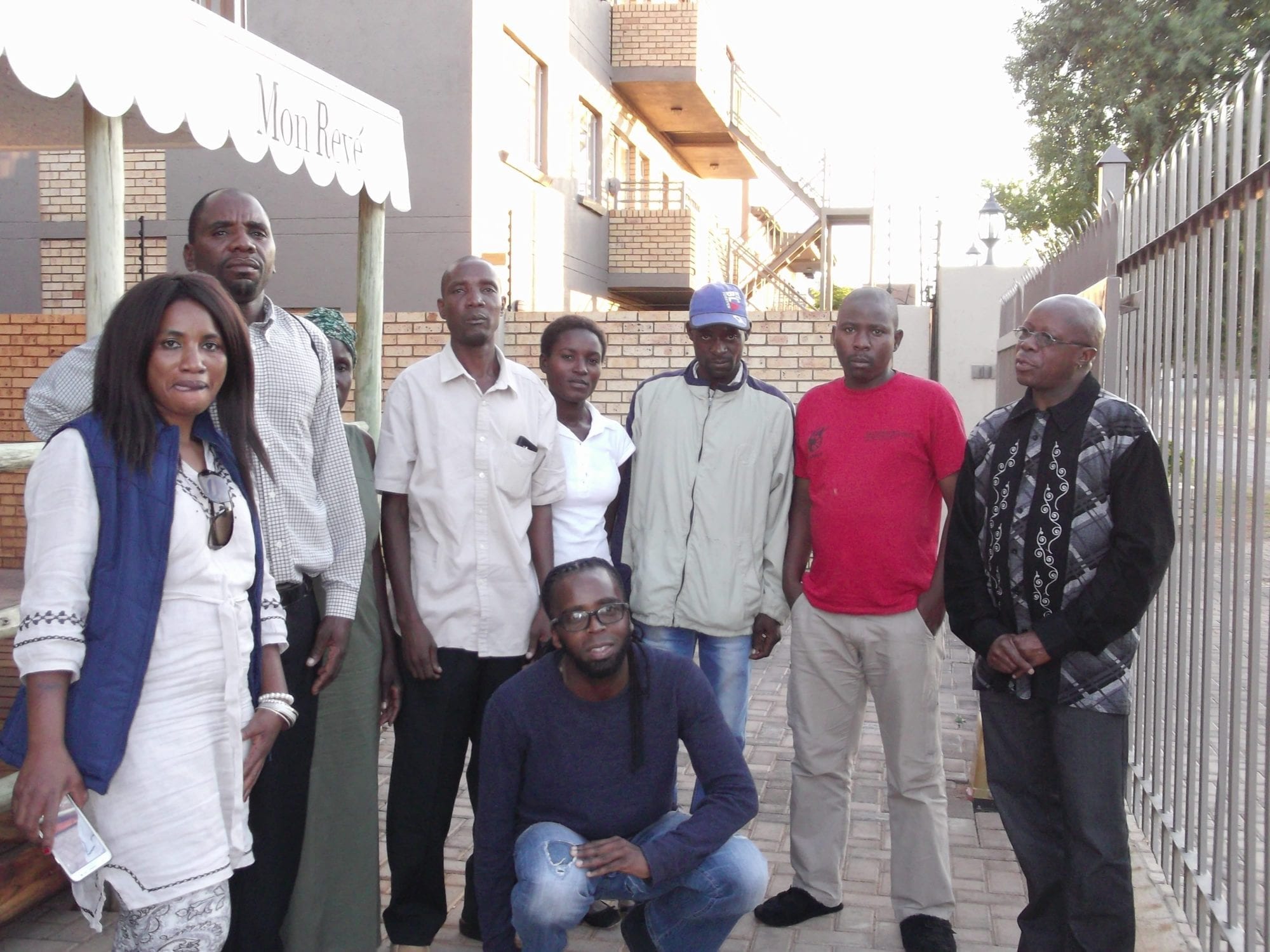
May 18, 2016
Some of the 245 Zimbabwe migrant farm workers brutalized and evicted last September from a large farm in South Africa, where many had toiled for years, have now been vindicated in court.
In a recent court hearing in South Africa, a judge rejected the farm owner’s argument that the workers were on extended strike and should not be compensated or reinstated. The judge offered the workers back pay or reinstatement, and the seven workers present opted for reinstatement to the farm at the legally determined wage.
The judge indicated he could reinstate only workers who were present, and with the assistance of South African Food and Allied Workers Union (FAWU), the seven workers have begun searching for the other workers.
Zimbabwe Migrant Farm Workers Driven from Their Homes
Last August, the Zimbabwean migrant farm workers, who labored on four vegetable farms operated by Johannesburg Farm, asked for a 59-cent-per-day pay increase. The workers, who were paid $120 month, roughly half the legal minimum wage, regularly put in 12-hour days, seven days a week, and were forced to toil 17-hour days during the harvest.
In September and according to witnesses, a group of men led by the farm owner fired rubber bullets at the workers’ homes, setting some on fire to drive workers out of their houses, where they were assaulted and clubbed. One of the workers, Edias, told Solidarity Center staff that he and four other workers were then kidnapped, tortured and interrogated for hours before police arrived. (For farm workers’ safety, we are using first names only.)
Unable to look for other jobs because the farm owner had confiscated their work papers, Edias and the others traveled to a refugee camp in Lephalale, South Africa, where they arrived in December near starvation.
Criminal Case and Wage Case Pending
Two other cases are pending. One involves a criminal hearing, set for late August, on the kidnapping and torture of the farm workers. South Africa’s Labor Department is leading the second case, which focuses on the issue of wage law violations. The Labor Department has the authority to demand back wages to January 1, 2015—which total more than $100,000—and assess penalties for violating the law.
Along with FAWU and the Migrant Workers’ Union of South Africa (MIWUSA), the Solidarity Center has provided key support to the Zimbabwe migrant workers, enabling them to be represented in court, offering material aid, generating public attention for their plight and raising awareness of the often brutal working conditions of migrant workers across South Africa.
The workers who are returning to the farm say they will post the ruling on minimum wages for farm workers and tell Solidarity Center staff that they feel vindicated—like human beings with standing and rights, according to one worker.
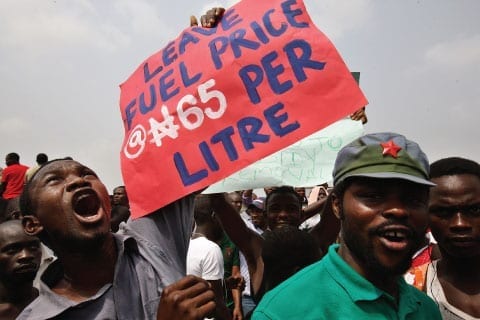
May 17, 2016
Nigeria’s largest trade union federations will call a nationwide strike May 18 unless the Nigerian government returns fuel subsidies it removed on May 11.
Meeting over the weekend, the executive councils of the Nigeria Labor Congress (NLC) and the Trade Union Congress of Nigeria (TUC), which together represent millions of workers, along with civil society organizations, decried the nearly 50 percent hike in fuel prices caused by deregulation and called on the government to return fuel subsidies and prosecute those involved in subsidy scams.
In a joint statement, the groups said that over the past five years, “there has been no increase in salaries or wages or pensions in the face of devaluations, spiraling inflation and other vagaries of the economy,” making the rising price of fuel “unrealistic, unaffordable (and) unacceptable.”
More than half of Nigeria’s population lives below the international poverty line of $1.25 a day, according to the most recent figures from UNICEF.
Although Nigeria is Africa’s biggest petroleum producer, the country imports nearly all of its refined fuel, unlike most members of the Oil and Petroleum Exporting Countries (OPEC), and is currently facing a severe shortage. Unions and civil society organizations are urging the government to create enhanced local refining capacity to permanently solve the problem of scarcity.
Eighty percent of Nigeria’s foreign currency comes from the petroleum industry.
The groups pointed out that the volatility of the country’s black market makes it unlikely the government will be able to stop fuel prices from rising further. They also cited the plunging local currency, the naira, which has rapidly begun depreciating against the dollar since deregulation, as furthering limiting consumers’ ability to purchase basic goods.
In calling for government measures to reverse fuel deregulation, the groups also are pushing for reform in the electricity sector, urging the government to end billing based on estimating electricity usage and make meters available to consumers.
When the government last attempted to deregulate fuel prices in January 2012, striking workers and students shut down airports, offices and shops, paralyzing the country for 10 days. At least 10 people died and hundreds were injured during the strike. Workers returned to their jobs after the government partially restored the fuel subsidy.
Unions also are calling on the government to involve labor in negotiating key policy issues and reverse privatization processes long pushed for by the International Monetary Fund and World Bank, including deregulation, which the groups say contravene “the constitutional provision that says government shall be the driver of the economy.”
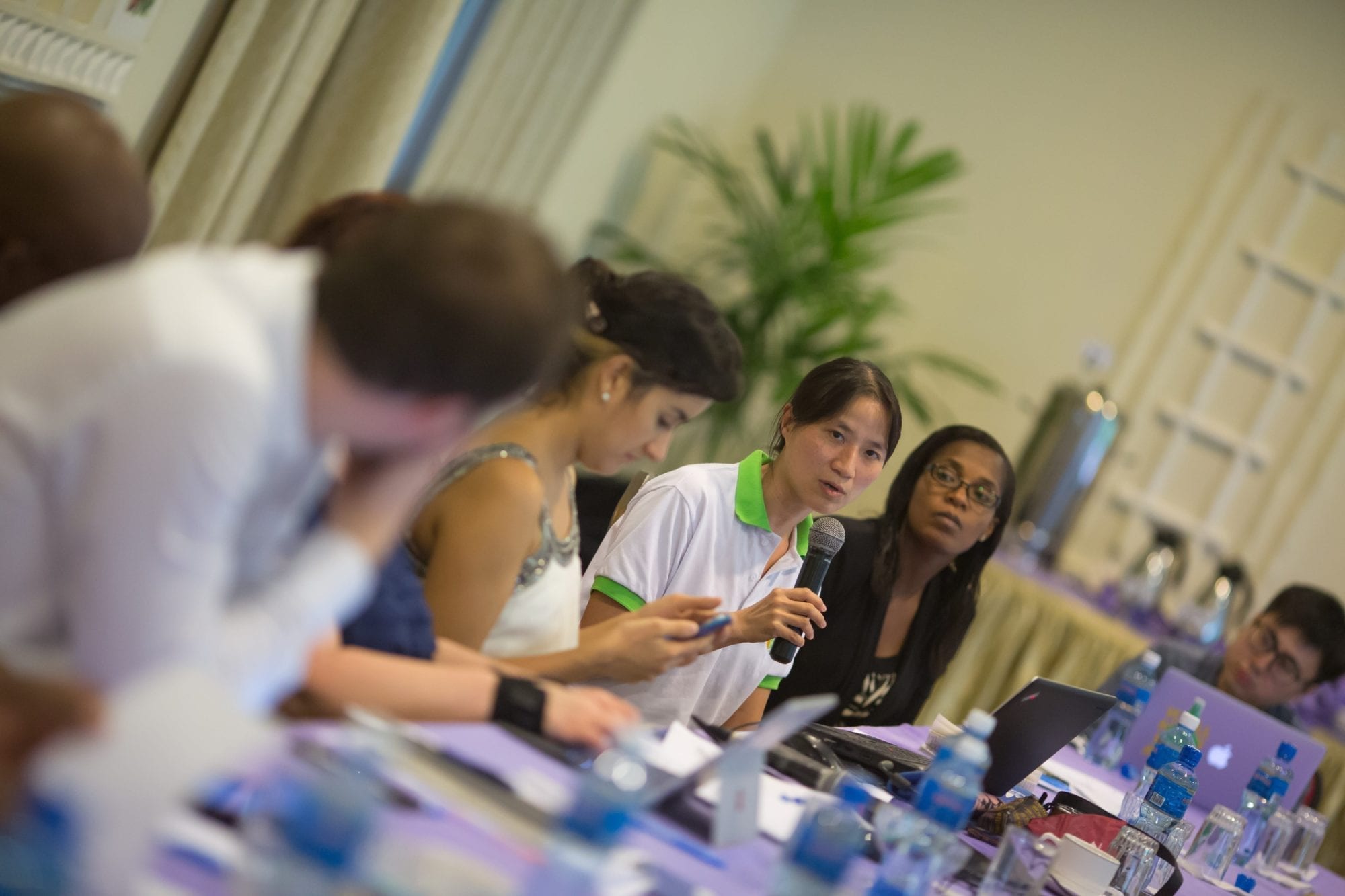
May 9, 2016
More than two dozen worker, union and human rights experts from around the world gathered last week in Kenya to discuss some of the most intractable global labor issues: informalization of work, gender inequality, migrant worker rights and the erosion of workers’ freedoms of peaceful assembly and of association.
The two-day “Expert Consultation on Freedom of Association and Assembly for Workers” was convened by Maina Kiai, UN Special Rapporteur on the Rights to Freedom of Peaceful Assembly and of Association (FOAA), in collaboration with the Solidarity Center. Shawna Bader-Blau, Solidarity Center executive director, co-facilitated the meeting.
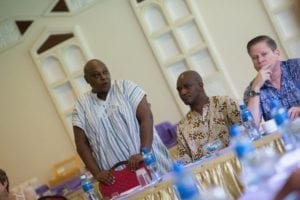
Maina Kiai (left) opens the discussion, with Wisborn Malaya (center) representing informal workers in Zimbabwe and Phil Robertson from Human Rights Watch. Credit: UN
High-level representatives from key organizations—Asia Monitor Resource Center; Asia Network for Rights of Occupational & Environmental Victims; Escuela Nacional Sindical (ENS, National Union School, Colombia); Human Rights House Foundation; Human Rights Watch; International Center for Not-for-Profit Law; International Corporate Accountability Roundtable; International Domestic Workers Federation; International Labor Organization; International Trade Union Confederation; Kenya National Union of Teachers; Kenya Union of Domestic, Hotels, Educational Institutions, Hospitals and Allied Workers (KUDHEIHA); Labor Research Service; National Guestworkers Alliance; Proyecto de Derechos Económicos, Sociales y Culturales (ProDESC, the Economic, Social and Cultural Rights Project, Mexico); Social and Economic Rights Institute of South Africa; UNITE-HERE; World Movement for Democracy; and Zimbabwe Chamber of Informal Employment Organizations—discussed the status of vulnerable workers and their rights, gender-based violence and discrimination, the ability of workers to exercise their rights to freedom of association and assembly, particularly in global supply chains.
The experts closed the meeting by looking at ways to bolster FOAA for vulnerable workers, including strengthening legal frameworks at the national level, monitoring and improving the practices of non-state actors, and establishing global governance mechanisms.
Discussions and conclusions from this consultation will feed into the Special Rapporteur’s next thematic report on the freedoms of peaceful assembly and association, which he will present to the UN General Assembly in October 2016.
“The Special Rapporteur’s focus on these very serious labor issues can have a real impact, and the organizations consulted during this kick-off meeting were excited to support the effort,” said Bader-Blau. “This is a critical moment for working people around the world, so many of whom are seeing their rights as workers deteriorate because the freedoms of association and assembly are under assault.”






